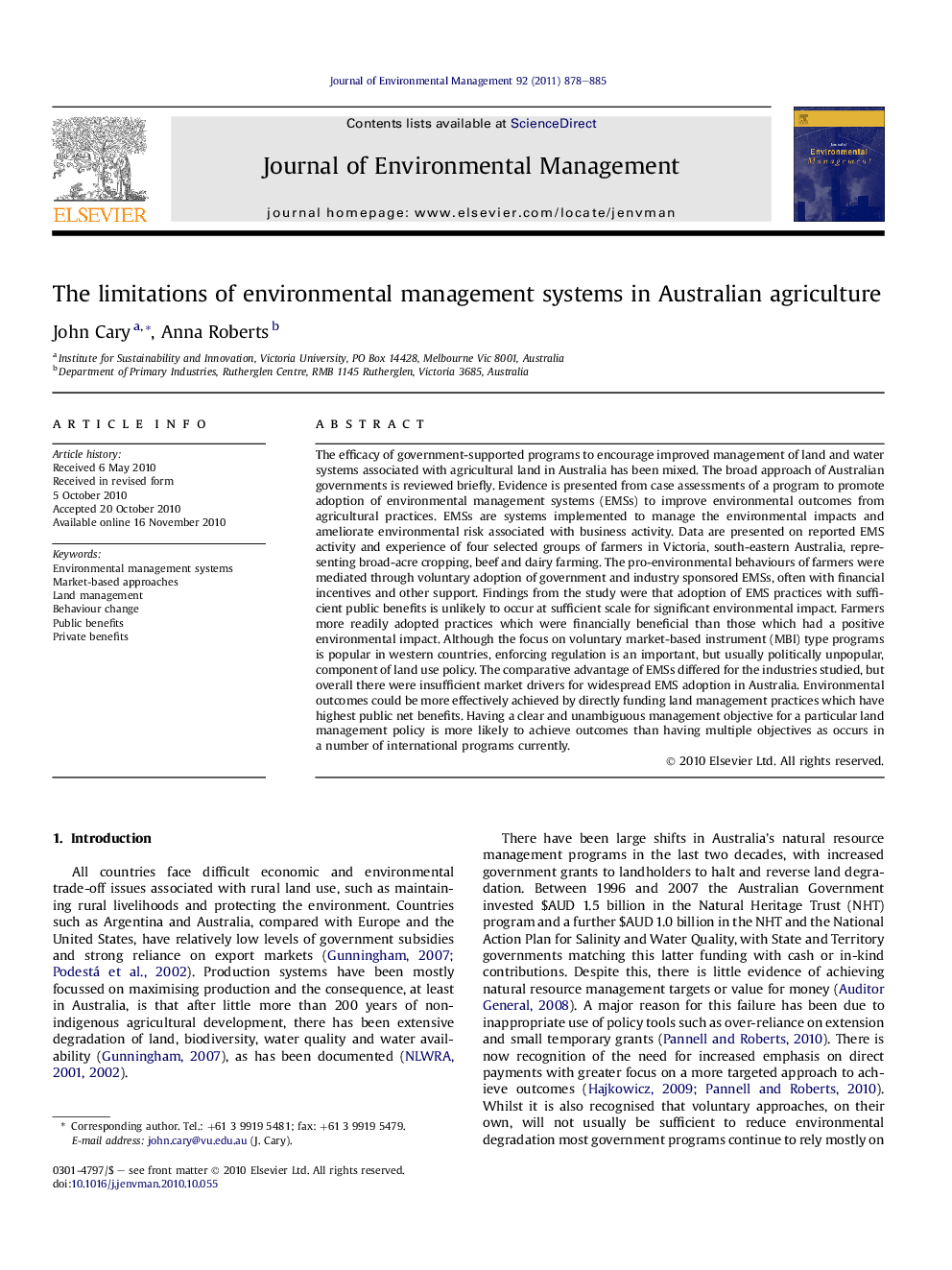| کد مقاله | کد نشریه | سال انتشار | مقاله انگلیسی | نسخه تمام متن |
|---|---|---|---|---|
| 10505552 | 947066 | 2011 | 8 صفحه PDF | دانلود رایگان |
عنوان انگلیسی مقاله ISI
The limitations of environmental management systems in Australian agriculture
دانلود مقاله + سفارش ترجمه
دانلود مقاله ISI انگلیسی
رایگان برای ایرانیان
کلمات کلیدی
موضوعات مرتبط
مهندسی و علوم پایه
مهندسی انرژی
انرژی های تجدید پذیر، توسعه پایدار و محیط زیست
پیش نمایش صفحه اول مقاله

چکیده انگلیسی
The efficacy of government-supported programs to encourage improved management of land and water systems associated with agricultural land in Australia has been mixed. The broad approach of Australian governments is reviewed briefly. Evidence is presented from case assessments of a program to promote adoption of environmental management systems (EMSs) to improve environmental outcomes from agricultural practices. EMSs are systems implemented to manage the environmental impacts and ameliorate environmental risk associated with business activity. Data are presented on reported EMS activity and experience of four selected groups of farmers in Victoria, south-eastern Australia, representing broad-acre cropping, beef and dairy farming. The pro-environmental behaviours of farmers were mediated through voluntary adoption of government and industry sponsored EMSs, often with financial incentives and other support. Findings from the study were that adoption of EMS practices with sufficient public benefits is unlikely to occur at sufficient scale for significant environmental impact. Farmers more readily adopted practices which were financially beneficial than those which had a positive environmental impact. Although the focus on voluntary market-based instrument (MBI) type programs is popular in western countries, enforcing regulation is an important, but usually politically unpopular, component of land use policy. The comparative advantage of EMSs differed for the industries studied, but overall there were insufficient market drivers for widespread EMS adoption in Australia. Environmental outcomes could be more effectively achieved by directly funding land management practices which have highest public net benefits. Having a clear and unambiguous management objective for a particular land management policy is more likely to achieve outcomes than having multiple objectives as occurs in a number of international programs currently.
ناشر
Database: Elsevier - ScienceDirect (ساینس دایرکت)
Journal: Journal of Environmental Management - Volume 92, Issue 3, March 2011, Pages 878-885
Journal: Journal of Environmental Management - Volume 92, Issue 3, March 2011, Pages 878-885
نویسندگان
John Cary, Anna Roberts,